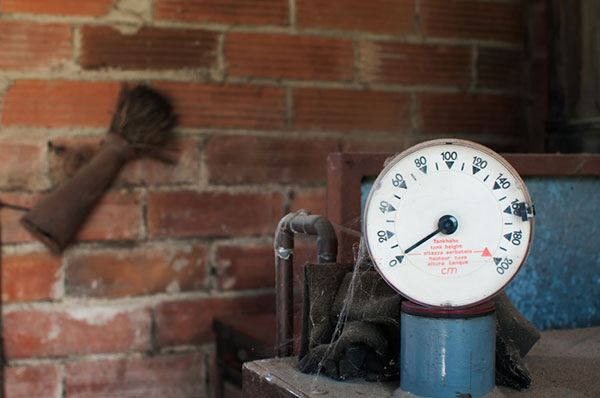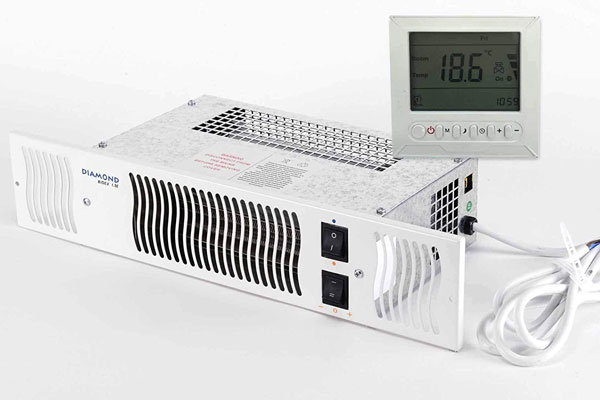Buying heating oil for the first time can be a bit hit-and-miss because you don’t really know how much you need. The amount of heating oil you should buy will depend on how much you use, but if you have never used it before, it can be hard to choose an amount because it will likely be too much or too little.
Working out how much oil you are likely to use can help give you a rough estimate of how much to buy so you will have enough to meet your needs but keep your buying costs down.
Heating oil prices can be higher during the winter, so it makes sense to buy it in the spring or summer months to save money. However, if you underestimate your use, you may find yourself running out of oil in the depths of winter and needing to buy more at a much higher price.
How much heating oil do I need to buy?
In the UK, the average household uses around 26,999 kWh of energy per year. You would need about 1,700 – 1,800 litres of heating oil to cover this usage. This works out to between two and three tanks of oil.
Many people choose to have regular quarterly heating oil deliveries of around 500 litres. This can be helpful to begin with because you can monitor how long 500 litres of oil lasts your household, and you can amend your next delivery accordingly to meet your needs.
However, you are likely to need more or less heating oil according to some factors, such as:
- The amount of time you run your heating
- The condition and age of your boiler
- The size of your home
How can I make my heating oil last longer?
In most cases, your heating out should last between 18 and 24 months before it goes to waste. There are additives that oil producers add to heating oil to preserve its quality and add to its longevity. However, you can do a few things to help make your heating oil last longer. This includes:
- Home insulation: Ensuring your home is well insulated against cold weather will mean you will use less heating oil. Double glazing, cavity wall insulation, wool carpets and loft insulation will help retain heat in your home. Adding thick curtains to your windows and glass doors will reduce the heat lost to cold window glass surfaces.
- Oil tank condition: Keeping your heating oil tank well maintained is crucial if you want to keep your oil in optimal condition for longer. Schedule routine checks to examine the condition of your tank and look for any damage, cracks, rust or deterioration. Check that the oil gauges and alarms are working and protect vents and gauges from rainwater.
- Be mindful of temperatures: One issue with heating oil is that once weather temperatures drop, the oil can thicken and develop a gel-like consistency, which can gum up your filters and lines. This is entirely temperature dependant, and once the weather warms up, the oil will return to its original consistency. This is something to bear in mind should you suffer a severe cold snap during winter.
- It would be best if you never overfilled your heating oil tank. Tanks should only be filled to around 80 or 90 per cent capacity to help prevent overflow and a nasty oil spill to clean up.
How much heating oil will I use a day?
It can help to determine how much heating oil you need to buy by recording how much oil you use in a day. Check your oil gauge to get a better idea about your heating oil consumption. Your heating oil tank will be fitted with an oil gauge that will show you the oil level in the tank.
Check your oil gauge daily and note how much oil you have used. Keep a record for a week or two, and then you can work out your average daily heating oil consumption. You can then take this average daily figure and multiply it by 365 to give you more of an idea about how much oil you will use over the year. This will help ensure you order enough to cover your needs without leaving you short.
How much will my heating oil cost?
The cost of your heating oil will depend on how much you order and when you buy it. Because heating oil prices fluctuate seasonally, you can expect to pay more during winter for your oil than buying it during the summer.
You should never expect to pay a set price for your heating oil all year round because seasonal fluctuations and wholesale prices can affect the end cost.
Will heating oil come down in price?
Since December 2021, UK heating oil prices have had an upward trend. According to ONS data, heating oil prices have been rising due to increasing wholesale costs of oil, due to demand outweighing supply, and disrupted oil supplies coming from Russia, the world’s third-largest oil producer.
If you want to save money on your heating oil, it is essential to keep track of UK oil prices and buy when you can get a good deal. Prices are forever fluctuating, so if you are running low on heating oil, don’t leave it to the last minute to top up your tank, or you could be paying a premium price for your oil.
What is the cheapest month to buy heating oil?
For UK householders, the cheapest months to buy heating oil are during the warmer summer months. If you can top up your tank during June, July or August, you will most likely be able to buy heating oil at the most cost-effective price.
The demand for heating oil in the UK peaks between October to March. It is understandable as these are the coldest months, but increased demand during these months puts a strain on oil supplies, hence the need to raise oil prices.
It makes sense to fill up your oil tank during the summer months, but if you order your heating oil quarterly, try to schedule it, so you are not paying peak prices in the height of winter. Buy as much as possible during the summer when demand is at its lowest and oil prices tend to fall.







